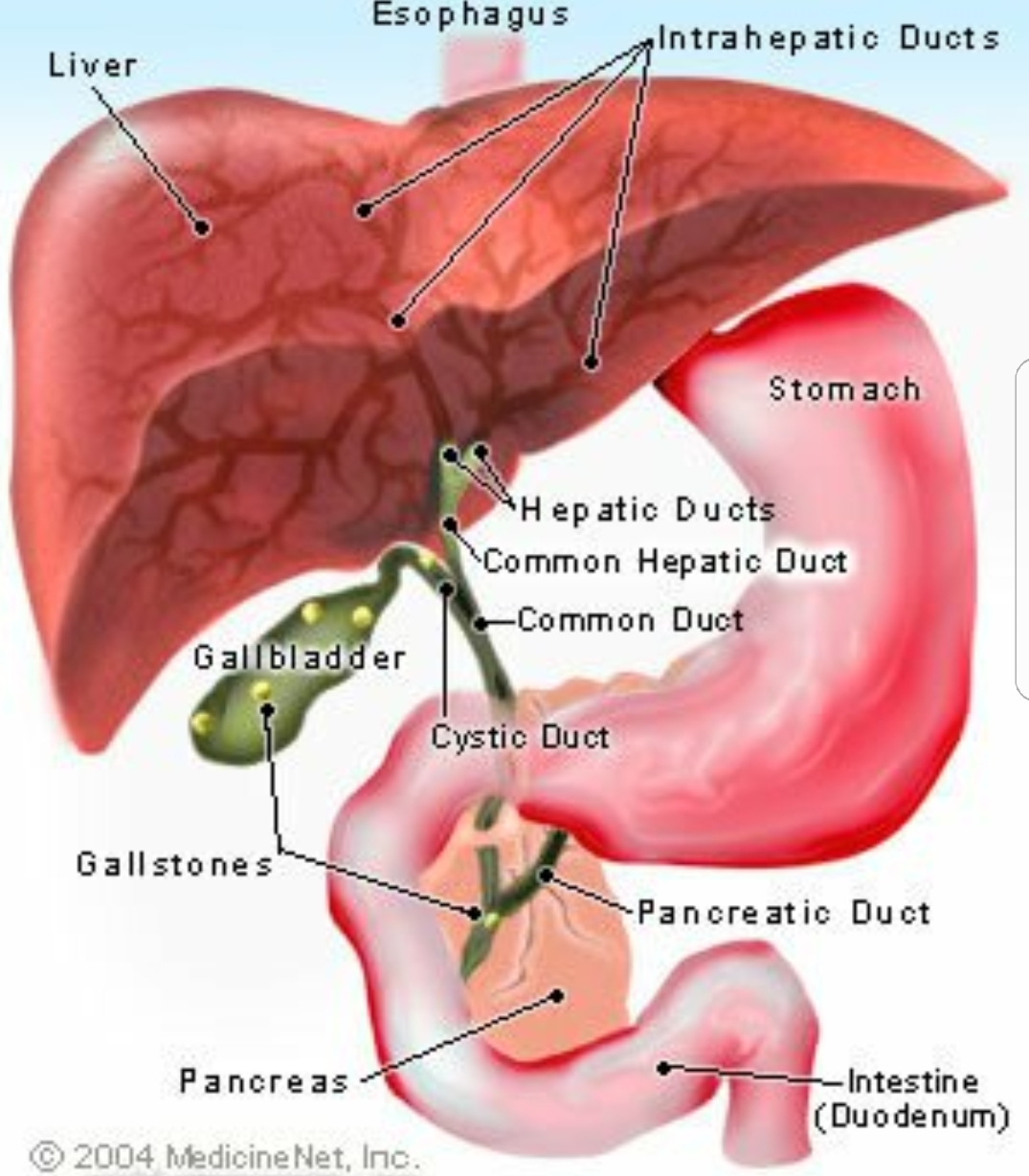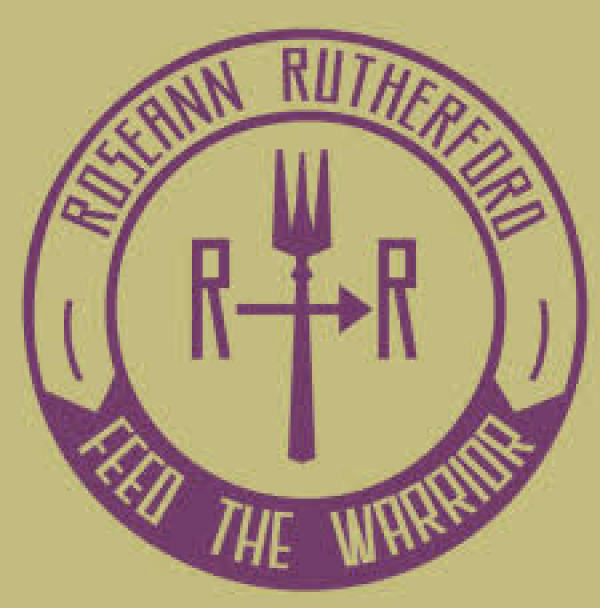
So, your doctor delivers the news: GALLSTONES. Now what? It is time to understand your body and learn the facts!
Let's begin with your liver. You may be wondering what your liver has to do with this. Aren't we supposed to be discussing your gallbladder? Not so fast! Remember, all organs in your body are interconnected. Your liver, one of the largest organs in your body - only second to your skin - is responsible for making bile, which is mostly water but also contains cholesterol, some fats, and bile salts. When you aren't eating fats, bile is stored in your gallbladder. Your gallbladder is a four-inch, pear-shaped organ positioned under your liver in the upper-right section of your abdomen.
When you eat a food that contains fat, your gallbladder responds by contracting and squeezes bile out through a duct. This bile then goes into your small intestine, where it is utilized to break down large globules of fat into very small ones that are easier for your body to manage.
Eating healthy fats, like coconut oil and fish oil, allows your gallbladder to empty more frequently. However, if your diet is heavily laden with starchy carbs such as wheat, rice, and corn, then that bile can remain in your gallbladder for a long time. Over time, the cholesterol in it can become more concentrated, eventually forming a gallstone. If you do consume fat, your gallbladder is then triggered to squeeze out bile and in doing so, that gallstone may become stuck in the duct.
The answer? Diet, diet, diet! But diet recommendations differ between those with and without gallstones. Proceed cautiously!
If you don't have gallstones, you have the green light! The answer is continued prevention. Eat a steady amount of healthy fats on a regular daily basis to help the gallbladder do its job and not allow the sludge to collect and form stones.
For those of you with a history of gallstones, who have likely been eating a diet low in fat and high in carbs (because this is what your doctor recommended), the answer is a little trickier. The goal will be to walk a fine line between not forming more stones and not creating a situation that throws you into a gallbladder attack.
Since eating a high carb, low fat diet is involved in the formation of stones, that is clearly not the answer. My suggestion: start low - go slow! Gradually add healthy fats to your diet. At the same time, reduce the amount of starchy carbs you are eating and increase consumption of fruits, veggies and especially leafy greens!
Here are some other factors to be aware of:
▪Yo-yo, crash and low-calorie dieters are at the greatest risk for developing gallstones. These diets cause the liver to release more cholesterol into the bile, thereby disrupting the normal balance of cholesterol and bile salts. That extra cholesterol can form into crystals, leading to gallstones.
▪Pregnant women are at a higher risk for developing gallstones. Estrogen produced during pregnancy can lead to higher cholesterol levels in bile. Studies have shown that eating a diet high in carbs and fructose increases this risk significantly, while eating healthy fats does not.
▪A very large study in 2005 reported that a high intake of carbohydrates increases the risk of symptomatic gallstone disease in men. This supports the premise that high-carb/low-fat diets should not be the standard recommendation.
▪Another study showed that obese patients - on a very low calorie diet - were at an increased risk for developing gallstones. In this study, the group consuming higher fats did not develop gallstones.
But what if this contradicts your doctor's advice?
Understand the research and don't be afraid to be an active participant in the conversation with your doctor about your health. Remember, medicine is not an exact science, no one person knows everything, and each of our bodies are highly individualized. Our gallbladder does not exist in a vacuum. It is an important part of a very intricate system that will operate efficiently if we do the right things to bring it back our body back into balance.
